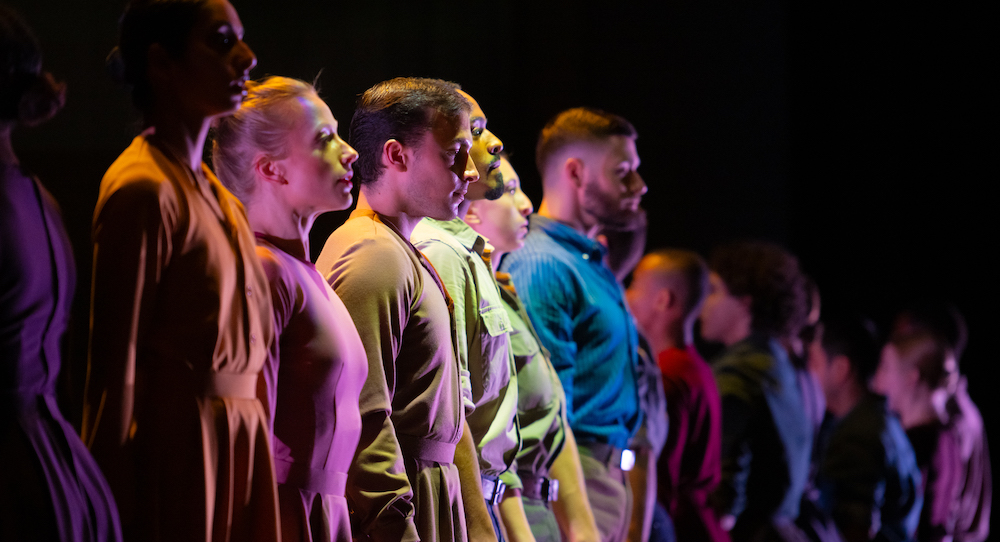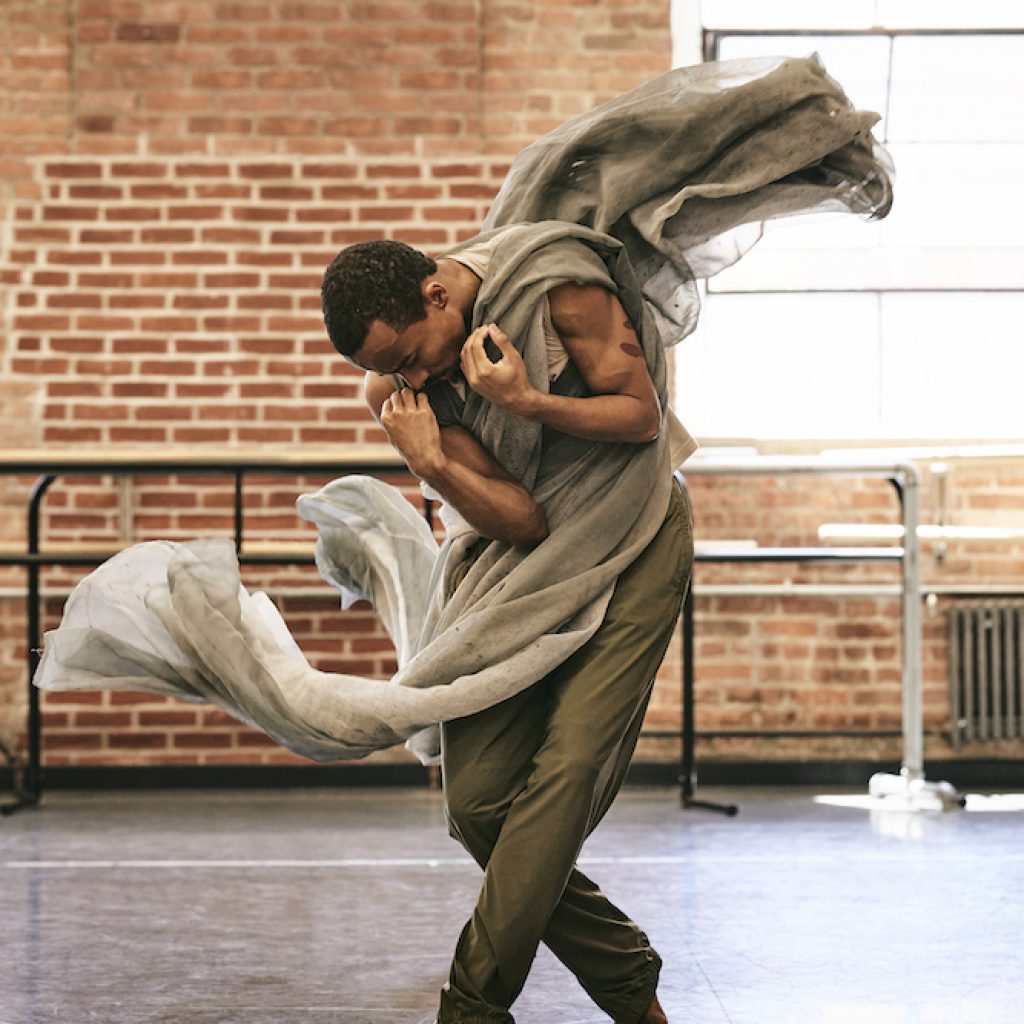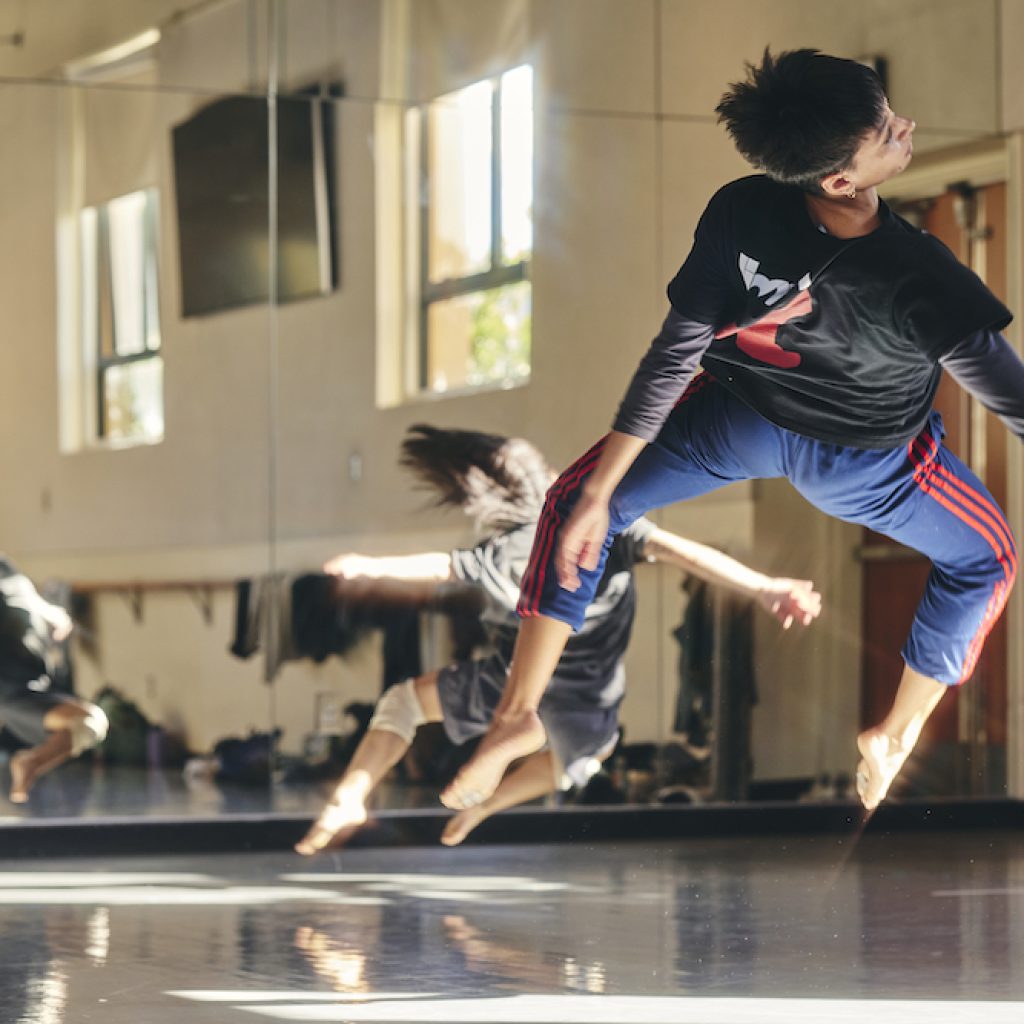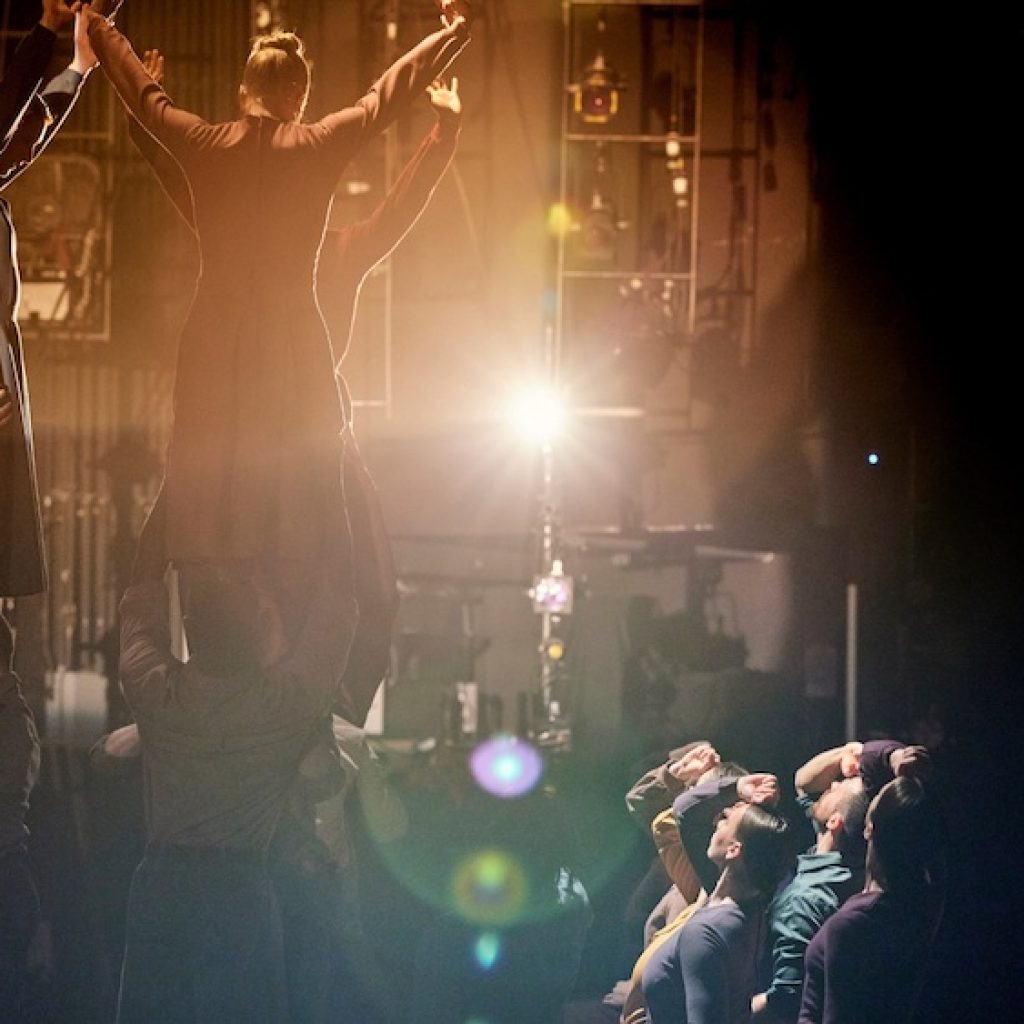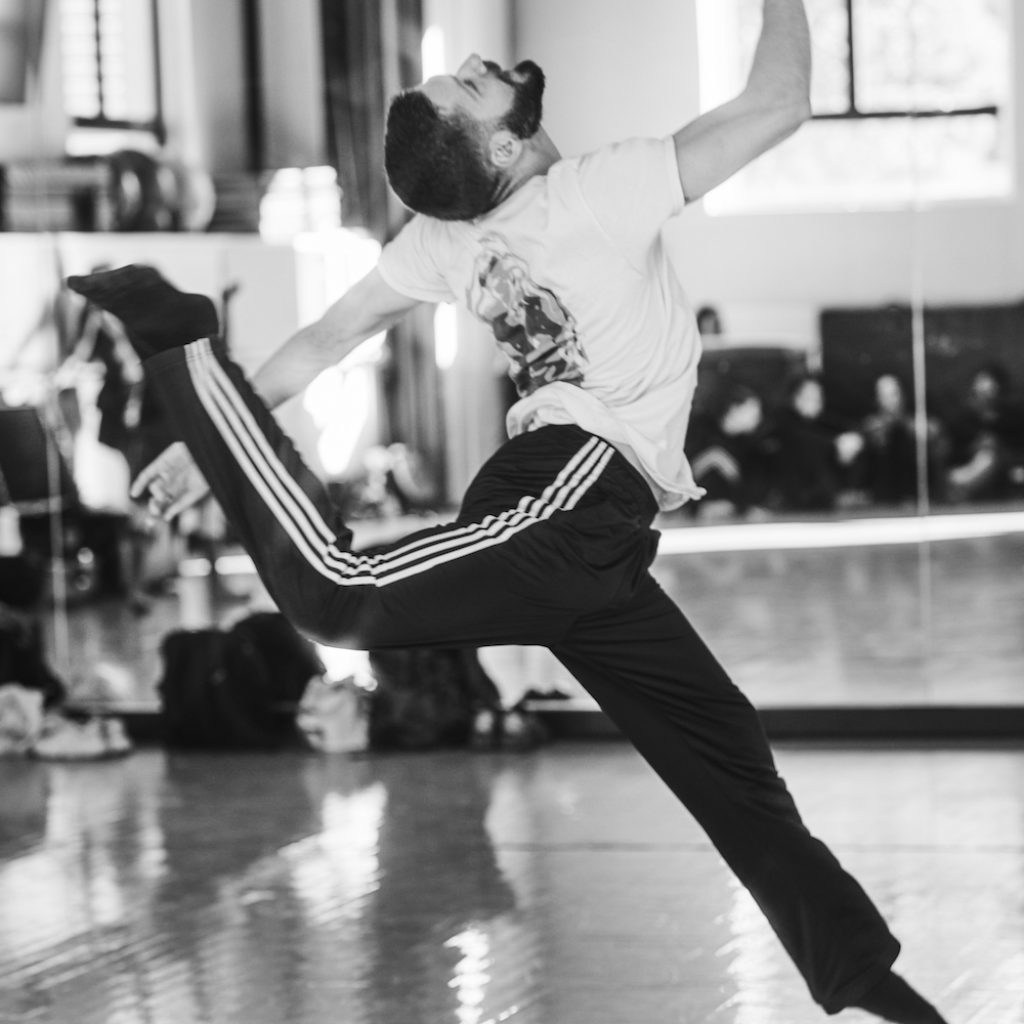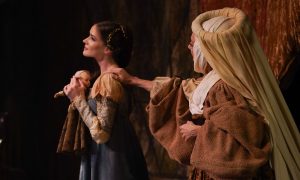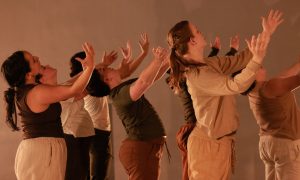José Limón, the founder of Limón Dance Company, once said, “We believe that we are never more truly and profoundly human than when we dance.” This quote is weaved throughout his powerful repertoire, basing his work off human drama.
Now embarking on its 78th season, the Company is back on the road, revitalizing past work, never-before-seen work and the world premiere of new work, all under the leadership of Artistic Director Dante Puleio, who became the sixth artistic director in the company’s history in 2020.
“José provided a space for the storytelling that needed to be told,” Puleio shares with Dance Informa. In his role with the company, Puleio focuses on contextualizing mid-20th century dance for the contemporary artist and audience. He is committed to implementing that research by celebrating Limón’s historical legacy and reimagining his intention and vision to reflect the rapidly shifting 21st century landscape.
Becoming the artistic director right before COVID provided Puleio with the time he needed to really decide his vision and next steps for the company, “especially in the months that were following with social justice movements. It really gave me so much time to figure out who I am in this place and what I am going to do with this company that makes sense for the next 75 years.”
He began looking at Limón’s original works and pieces that never made it to the stage. He realized much of Limón’s work was tied to his personal heritage. “He pulled apart all the different archetypes of who he was, and I thought, okay, this is where I need to start. I need to look at who he was and what made him who he was.”
During this time, Puleio also noticed it was the women in Limón’s life who shaped him into the man he was, including his wife, Pauline Lawrence, and his mentor, Doris Humphrey. This discovery encouraged Puleio to have the Company work with women who are shaping the field of dance in this moment.
“I felt it was important to highlight how this legacy company was founded and supported through women’s perspectives, and I want to continue that.”
As he began deciding which works to include this season, Puleio turned to his artists within the company to see what choreographers were exciting them and who they wanted to work with. In those conversations, Kayla Farrish’s name came up often.
Farrish won a Bessie Award in 2022, the same year Limón Dance Company received its Bessie for its work titled Migrant Mother, choreographed by Raúl Tamez. Although an early career choreographer, Puleio listened to his artists and set up a conversation with Farrish, who was ready to take on the challenge.
“I’m just really excited about the content of the work,” Farrish shares. “It feels emotional and eruptive, emotional, visceral and touching. I’m just excited for people to experience what’s in that and how they’re tethered to that or the impact of that, and to see these incredible dancers and artists. For me, outside of that, it’s my first company commission with Limón Dance, so that’s really an amazing collaboration. And then it’s my first premiere at The Joyce. All around, I’m excited about a lot of things!”
After agreeing to work together, Puleio and Farrish sat down and looked at two of Limón’s lost works. The first was a work he made in Mexico in 1951 called Redes (“networks”), which is about a group of people working to build something. The piece was lost for many years. When he moved to New York City, Limón re-choreographed the piece and renamed it to El Grito (“The Scream”), which is about a cultural awakening inside of a community.
“Alongside Limón’s work, I also share a lot with looking at humanism and looking at people, challenging us to be present or with ourselves and our voices,” Farrish says. A challenge leading into creating the pieces, however, was she only had photographs of Redes and El Grito to reference while choreographing. “I didn’t have any video. There wasn’t even any video of him speaking of the piece, so I had to pull from the photographs, the translation, the musical score. My brain started spinning with the themes of community and feeling. It’s about seeing the community process these large-scale feelings and how things change, how you see individuals in the community, the complications of us being alongside of each other with different opinions and different feelings.”
To Puleio, he hopes Farrish’s piece, titled A Quake that Held Them All, inspires hope. “It’s so timely right now in terms of the world and in terms of what will be happening on November 5, when we open. I think it will be an important piece for that week, regardless of which way we go on Election Day.”
In addition to A Quake that Held Them All, Limón Dance Company will also be performing Doris Humphrey’s solo, Two Ecstatic Themes, as well as Limón’s The Traitor, Scherzo and Missa Brevis.
“Coming to this country, José always felt that he was on the outside, never really being part of the community, but still feeling hope and strength inside the community,” Puleio reveals. “So much of his work has this outsider looking in feel. I’m excited that the audience is going to come in and maybe step in the shoes of José and feel like an outsider looking in, as he saw the world.”
The Traitor is a take on The Last Supper, told from Judas’ perspective. It takes a person “deemed as evil” and reexamines how he saw the world. The work, previously only performed with a cast of 10 men, will be performed with a mixed gender cast for the first time. Puleio says, “I’m excited to tell this piece in a new way. We got new costumes, we have a new recording, and we stripped away the need for only men to be able to tell this story. It’s not just men at the table anymore.”
Scherzo was a lost work that was last performed only one time in 1981, and prior to that around 1955. Scherzo consists of four shirtless men tossing a drum around. “Limon’s work is so serious and heavy. To have four guys tossing around and banging on a drum for 10 minutes is fun. Let’s have some levity and a good time,” Puleio says.
Two Ecstatic Themes is Humphrey’s solo from 1931, that allows audiences to experience her exploration of falling and recovering.
“I hope that [our performance gives our audience] a moment to step away from their reality,” Puleio says. “I hope it takes them somewhere and that they’re able to leave with a little bit more sense of self inside of their world. A sense of agency and power over the decisions they make instead of being influenced by the media or being told what to believe. And then community. Having each other is the most important thing in this time that feels divisive and feels highly charged. I hope they unplug for a little bit and can be swept away in a world for two hours.”
Limón Dance Company will perform at The Joyce Theater from November 5-10. Tickets are on sale now and can be purchased here.
By Lauren Harvey of Dance Informa.


